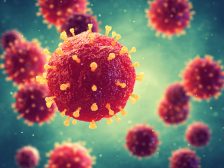Atomic mass
(Science: chemistry, physics) The mass of an atom relative to other atoms.
The present-day basis of the scale of atomic weights is carbon, the most common isotope of this element has arbitrarily been assigned an atomic weight of 12.
The unit of the scale is 1/12 the weight of the carbon atom or roughly the mass of one proton or one neutron. The atomic weight of any element is approximately equal to the total number of protons and neutrons in is nucleus
Dictionary > Atomic mass
You will also like...

Seed Plants
Seed plants are vascular plants. They differ from the other vascular plants in producing seeds that germinate into a new..

Principles of Hormonal Control Systems
Hormones are essential in the regulation of the activity of the various biological systems of the human body. The ineffi..

Biological Viruses
Viruses possess both living and non-living characteristics. This unique feature distinguishes them from other organisms...

Psychiatry & Mental Disorders
Different mental disorders are described here. Read this tutorial to get an overview of schizophrenia, affective mood di..

Growth and Plant Hormones
Plants, like animals, produce hormones to regulate plant activities, including growth. They need these hormones to respo..

Population Growth and Survivorship
This lesson looks at population attributes, regulation, and growth. It also covers population genetics, particularly gen..

